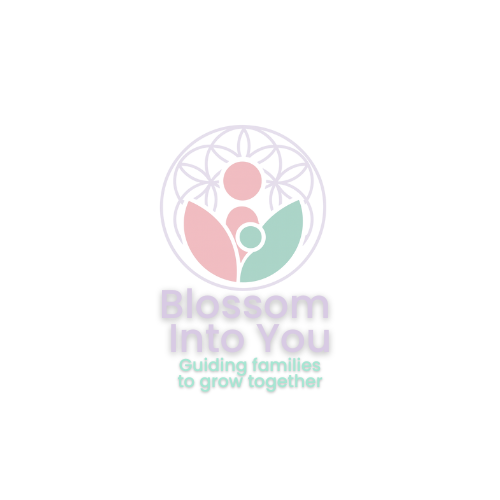Real-life stories to learn more about The Trio in Action
Meet Jamie: a fiery young boy with lots of energy.
Jamie is a bright, energetic five-year-old who recently started Prep. His parents were concerned about some of his behaviours:
- He doesn’t like being touched, especially unexpectedly
- He avoids messy play and dislikes dirty hands
- He lashes out when other children get too close, particularly in lines
- He’s prone to temper tantrums when frustrated or when things don’t go his way
Let’s look at Jamie’s behaviour through the lens of the Trio of Connection.

Body: Understanding Jamie’s Sensory World
From a Sensory Processing perspective, Jamie shows signs of tactile defensiveness a form of hypersensitivity where touch can feel overwhelming or even threatening.
To support his nervous system, his parents and teacher were given strategies like:
- Deep pressure activities (e.g. being rolled in a blanket)
- Heavy work play (e.g. carrying groceries, wheelbarrow pushing, tug-of-war, trampoline jumping)
- Gradual exposure to messy play
- Always asking permission before physical contact
- Wrestling games with dad or using a boxing bag for releasing tension
These activities help regulate Jamie’s sensory system, allowing him to feel calmer and more in control.
Heart: Meeting Jamie’s Emotional Needs
Jamie’s challenging behaviour at school led to frequent negative feedback. This was concerning, especially if Words of Affirmation happened to be his primary love language.
Jamie’s parents were encouraged to:
- Observe how Jamie shows love this offers clues to his preferred love language
- Use all five love languages consistently to show affection:
- Words – Praise for progress rather than criticism of mistakes
- Quality Time – Engaging in sensory activities together
- Acts of Service – Supporting him through daily challenges
- Gifts – Providing tactile tools as gestures of love
- Touch – Adjusting physical contact with consent
This understanding was particularly healing for Jamie’s mum, whose own love language is touch. She no longer felt personally rejected when Jamie avoided hugs as she now understood his sensory needs.
Soul: Honouring Jamie’s Inner Nature
Jamie’s astrological birth chart revealed that he has a Sun in Aries, with Mars as his ruling planet. Aries children tend to be:
- Assertive
- Independent
- Energetic
- Competitive
- Natural leaders
This insight helped Jamie’s parents shift their approach. Instead of seeing his wilfulness as defiance, they now saw it as a strength that needed guidance not suppression.
They began to:
- Offer structured challenges
- Give Jamie choices to encourage decision-making
- Teach cooperation through team play
- Channel his drive into positive leadership roles
Integration: Seeing the Whole Child
By combining insights from Jamie’s body, heart, and soul, we created a fuller, more compassionate picture of who he is and what he needs to thrive.
Understanding Jamie’s sensory sensitivity, recognising his love language, and honouring his fiery Aries nature allowed his parents and teachers to:
- Create a supportive environment
- Adjust their expectations
- Foster Jamie’s strengths
- Deepen their connection with him
Instead of trying to “fix” Jamie’s behaviour, they learned to work with his nature, helping him grow into his true self with confidence and emotional safety.
“The kids who need the most love will ask for it in the most unloving ways.” – Unknown
Meet Ella: A Gentle Soul in a Noisy World

Ella is a quiet and sensitive four-year-old who prefers to stay close to her mother rather than playing with other children. She covers her ears when loud sounds erupt and avoids going outside when the sun is too bright. Her mother, recently back at work and adjusting to the demands of single parenting, is understandably feeling the strain.
Body: Understanding Ella’s Sensory Needs
Ella’s behaviour suggests heightened sensitivity to sound and light a common experience for children with sensory processing differences. When overwhelmed, her body’s instinct is to retreat.
To support her:
- Avoid overstimulation by limiting visits to busy environments like shopping centres, or by preparing her ahead of time.
- Noise-cancelling headphones or calming music can offer comfort once she is ready to wear them.
- Encourage play in quiet spaces, away from vacuum cleaners, lawn mowers or other jarring sounds.
- Playdates with one child at a time can help ease social anxiety.
- When visiting others, her mother can remain nearby until Ella feels confident to engage independently.
Heart: Nurturing Connection Through Love Languages
At Ella’s age, all five love languages can be explored to see which she responds to most naturally. With her mother working again, Ella may feel the absence of their previous closeness. Just a few minutes of focused time together each day doing something Ella enjoys can restore her sense of connection.
Some simple ways to support Ella’s emotional needs:
- Quality time: Daily routines or rituals, even brief, can be deeply grounding.
- Acts of service: Involving her in small, age-appropriate tasks builds her confidence and creates moments of shared connection.
- Words of affirmation: Gentle encouragement helps reinforce positive behaviour and self-worth.
- Gifts: Something as simple as a new hat or sunglasses can be both practical and meaningful.
- Physical touch: A reassuring hand or hug communicates understanding when words fall short.
Soul: A Deeper Look Through Astrology
Ella’s birth chart reveals a Cancer Sun and Pisces Moon, both water signs that speak to her deep emotional sensitivity and rich inner world. She likely craves emotional safety and may be especially attuned to the moods of those around her.
Suggestions for soul support:
- Create a nurturing home base a cozy corner or play space where she can retreat and recharge.
- Encourage imagination through activities like pretend play, drawing, or storytelling.
- Mind the emotional atmosphere at home, especially as her mother adjusts to work-related stress.
- Foster compassion by allowing her to help care for a pet or tend to a small plant—outlets that channel her instinct to nurture.
Integration: Embracing Ella’s Whole Being
Ella’s sensitivity both physical and emotional isn’t something to be “fixed,” but honoured. With thoughtful support, her quiet, intuitive nature can become one of her greatest strengths.
Rather than expecting her to “toughen up” or become more outgoing, caregivers can:
- Celebrate her gentle empathy and attunement to others.
- Provide tools to help her navigate a sometimes-overwhelming world.
- Offer safe, manageable experiences that gradually build her confidence.
Conclusion: The Power of an Integrated Perspective
By considering Ella’s sensory profile, emotional needs, and astrological blueprint, we gain a fuller picture of who she is and how best to support her. Each lens offers valuable insight but together, they allow us to meet Ella where she is, helping her feel seen, safe, and secure.
When children are understood in this holistic way, they are more likely to trust their caregivers, develop strong emotional bonds, and grow into confident, resilient individuals secure in the knowledge that their unique nature is not only accepted, but cherished.
